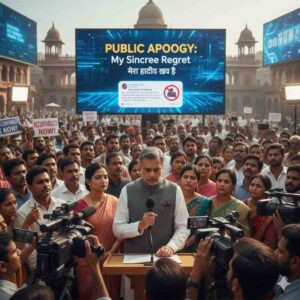Mumbai/New Delhi: The proliferation of Educational Technology (EdTech) is not just transforming the Indian education system; it is also redefining the very benchmarks of academic quality. As classrooms turn virtual and algorithms replace traditional teaching methods, there is growing concern that this new definition of “quality” might prioritize technological proficiency over comprehensive understanding.
Metrics Over Mastery
In the digital classrooms of India, from the high-tech hubs of Bangalore to the smaller towns of Madhya Pradesh, EdTech platforms are setting new standards for what constitutes academic excellence. Students are increasingly judged by their ability to navigate software, their speed in completing digital tasks, and their rankings on various performance metrics.
“Are we creating tech-savvy test-takers rather than well-rounded thinkers?” questions Dr. Lakshmi Patel, an education researcher from Hyderabad. This sentiment is gaining traction among educators who worry that the depth of learning is being sacrificed for the dazzle of digital performance.
The Rush for Digital Badges
The chase for micro-credentials—digital badges for completing specific tasks or mastering particular software skills—is becoming synonymous with learning. However, critics argue that this system reduces education to a checklist of skills, undermining the holistic development traditionally valued in academic environments.
“Education should foster curiosity and critical thinking, not just a collection of badges,” argues Rahul Mehta, a teacher from a government school in rural Rajasthan. His concerns reflect a growing unease about the superficial nature of learning that might emerge from such a system.
Equity and Access: The Forgotten Dimensions
As EdTech reshapes the educational landscape, it also highlights stark inequalities. Access to high-quality digital education remains a privilege of the urban and affluent, creating a divide that leaves many students behind. “The new definition of quality seems to apply only to those who can afford it,” points out Anita Singh, an activist working on educational equity in Bihar.
Demand for Regulatory Oversight
The call for regulatory oversight is growing louder as stakeholders push back against the unchecked expansion of EdTech. There is a pressing need for guidelines that ensure these technologies enhance rather than replace traditional educational values.
“We need to ensure that our rush to digitalize does not trample the foundational principles of good education,” states Dr. Manish Kumar, an education policy expert from Delhi. His call for a balanced approach is echoed by many who see potential in EdTech but are cautious of its pitfalls.
Conclusion: A Critical Junction for Education
India’s education sector is at a critical juncture. The integration of EdTech presents a unique opportunity to enhance learning but also poses significant challenges that must be addressed to prevent the erosion of academic quality. The debate is intense, and the outcomes will significantly impact the future of education in India.
How should India navigate the integration of EdTech to ensure it supports rather than undermines academic quality?









